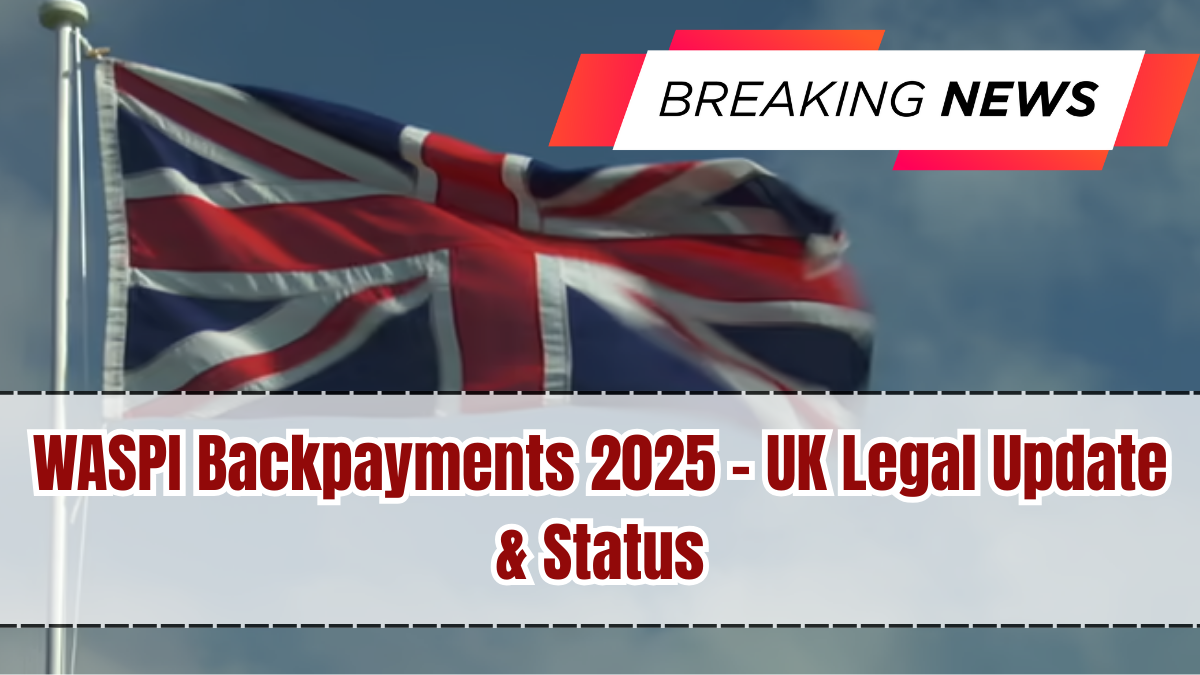The fight for justice by the WASPI women (Women Against State Pension Inequality) has reached another critical stage in 2025. These are women born in the 1950s who argue they were not given fair notice about the government’s decision to raise the state pension age from 60 to 65, and then to 66.
For years, the campaign has focused on the unfair impact this change had on retirement plans, leaving many without the pension they had expected. Now, in 2025, the debate over backpayments and compensation has intensified, as legal proceedings and political discussions continue to unfold.
This year is particularly important because campaigners are pressing the government to provide financial redress for the hardship caused, while many women approach or are already in their 70s.

What Are WASPI Backpayments?
Backpayments refer to the compensation WASPI women are demanding for the years of pension income they lost due to changes in state pension rules. The argument is not against equalizing the retirement age between men and women, but rather against the lack of proper notice that left women unprepared.
Campaigners believe that affected women should receive financial compensation to account for the gap created by the state pension changes.
Current Legal Status in 2025
As of Autumn 2025, the legal fight is ongoing. The Parliamentary and Health Service Ombudsman (PHSO) has already ruled that the Department for Work and Pensions (DWP) failed in its duty to communicate changes properly.
The Ombudsman recommended that women should receive compensation. However, the government has yet to agree on the scale of payments, and discussions in Parliament remain divided.
Some MPs have voiced strong support for compensation, while others argue the financial burden on the state would be too high. Campaigners warn that continued delays only add to the distress of women who have already waited decades for fairness.
How Much Could WASPI Women Receive?
The suggested compensation levels vary. Campaign groups are pushing for payments between £10,000 and £20,000 per woman, while official recommendations have pointed to lower amounts, ranging from £1,000 to £2,950 per person.
The final figure depends on whether the government accepts the Ombudsman’s recommendations or negotiates a smaller settlement. No official compensation framework has yet been confirmed in 2025, which means uncertainty continues for the affected women.
Government’s Response So Far
The government has acknowledged the Ombudsman’s findings but has not committed to a formal compensation scheme. Officials maintain that while communication could have been better, the state pension changes were legally necessary to ensure equality and sustainability of the system.
Critics argue that this stance fails to address the personal hardship and broken trust faced by WASPI women. Many had to work longer, take on low-paid jobs in later life, or rely on savings they had not planned to use so early.
Why This Matters
The WASPI case is about more than pensions—it represents a question of justice and accountability. For thousands of women, the lack of timely information disrupted retirement planning, forced unexpected financial sacrifices, and created long-lasting hardship.
2025 could prove to be the turning point if Parliament decides on a compensation scheme. But delays risk eroding faith in the system, as many women fear they may never see the justice they have fought so long for.
FAQs
What are WASPI backpayments?
They are compensation payments being sought by women affected by state pension age changes who were not properly informed.
Has the government confirmed compensation in 2025?
No. While the Ombudsman recommended it, the government has not yet committed to an official scheme.
How much could women receive?
Proposals range from £1,000–£2,950 officially, but campaigners demand £10,000–£20,000.
Who is eligible for WASPI compensation?
Women born in the 1950s who faced pension delays due to the retirement age increase and lack of notice.
What happens next?
Parliament and the government must decide whether to accept the Ombudsman’s recommendation or propose their own settlement plan.
Click here to know more.




